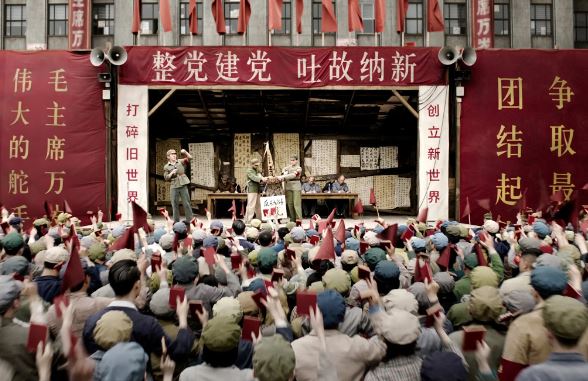The debut of Netflix’s “3 Body Problem” left viewers worldwide grappling with its portrayal of China’s tumultuous history and the broader implications of cultural representation. The opening sequence, depicting the brutal violence of the Cultural Revolution, served as a stark reminder of China’s past atrocities. A physics professor’s merciless beating during the height of the revolution in 1967, culminating in his daughter’s disillusionment with humanity, set a tone of unease that resonated throughout the series.
Chinese audiences, however, reacted with a mix of outrage and skepticism. On social media platforms like Weibo, criticisms abound, ranging from objections to the series’ deviation from its Chinese roots to concerns about the accuracy of its historical portrayal. Many felt that the adaptation failed to capture the essence of Liu Cixin’s acclaimed trilogy, “The Three-Body Problem,” which explores humanity’s response to an impending alien invasion amid political turmoil.
While the original novels garnered widespread acclaim both in China and abroad, the Netflix adaptation faced accusations of pandering to Western audiences and perpetuating negative stereotypes about China. Some viewers questioned the necessity of the graphic depiction of the Cultural Revolution, while others lamented the absence of authentic Chinese elements in the series. The decision to set much of the story in Britain, with a racially diverse cast, further fueled the controversy, with critics labeling it as “American-style political correctness.”
Liu Cixin’s vision of humanity’s place in the universe, as depicted in the novels, transcends national boundaries and cultural differences. Yet, the series’ departure from the source material left many Chinese fans feeling alienated and misrepresented. Despite the global success of the books, the Netflix adaptation’s reception in China underscored the lingering effects of censorship and indoctrination on public perception.
The reluctance to confront the darker chapters of China’s history, such as the Cultural Revolution, reflects a broader trend of censorship and historical amnesia. The Cultural Revolution, initiated by Mao Zedong in 1966 to purge perceived enemies of the Communist Party, remains a sensitive topic in China, with discussions heavily censored by the government. Liu Cixin’s decision to include the struggle session in his novels faced scrutiny from censors, highlighting the ongoing challenges of addressing historical traumas in Chinese media.
The controversy surrounding “3 Body Problem” reflects deeper anxieties about cultural representation and historical memory in China. While the series may have sparked important conversations about the country’s past, it also reignited debates about the limits of artistic freedom and the responsibility of creators to faithfully depict historical events. As Chinese audiences grapple with these complex issues, the legacy of the Cultural Revolution continues to cast a long shadow over the nation’s cultural landscape.
In the age of digital media and globalized entertainment, the debate over “3 Body Problem” serves as a reminder of the power of storytelling to shape perceptions and provoke thought. Whether it’s through novels, films, or television series, narratives have the ability to transcend borders and spark dialogue about shared human experiences. As viewers around the world engage with the series, they are confronted with questions about identity, ideology, and the enduring legacy of history.

